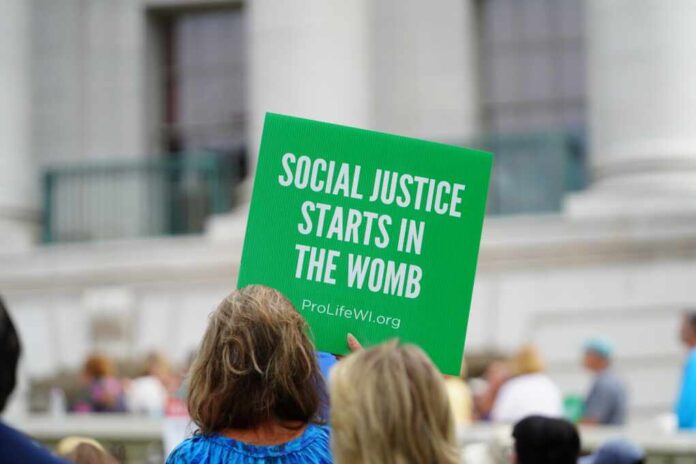
South Carolina’s Supreme Court upholds the state’s pro-life heartbeat law, rejecting Planned Parenthood’s attempt to redefine when a fetal heartbeat is detectable.
At a Glance
- South Carolina Supreme Court upheld the state’s heartbeat law that protects unborn babies at around six weeks of development
- The court rejected Planned Parenthood’s claim that fetal heartbeats aren’t detectable until around nine weeks
- The ruling defines “fetal heartbeat” as occurring at approximately six weeks based on detectable cardiac activity
- Governor Henry McMaster and Attorney General Alan Wilson celebrated the decision as a victory for pro-life policies
- The court emphasized the authority of elected legislators over out-of-state interest groups in shaping state policies
Court Upholds Six-Week Protection Standard
The South Carolina Supreme Court has delivered a significant victory for pro-life advocates by upholding the state’s heartbeat law, which provides protection for unborn babies at approximately six weeks of development. In a decisive ruling, the court rejected Planned Parenthood’s scientific claims that attempted to push the timeline for fetal heartbeat detection to nine weeks. Instead, the justices affirmed that cardiac activity can be detected via transvaginal ultrasound technology at around six weeks of pregnancy, establishing this as the legal standard for protection under state law.
The court’s decision represents a dramatic shift in South Carolina’s abortion policy. Prior to this ruling, the state allowed most abortions up to approximately 20 weeks post-fertilization. The heartbeat law includes exceptions for rape, incest, or pregnancies that threaten the mother’s life, but otherwise restricts most abortions after the six-week mark when cardiac activity becomes detectable through medical technology.
State Officials Celebrate Pro-Life Victory
South Carolina’s Republican leadership welcomed the court’s decision as an affirmation of their pro-life legislative efforts. Governor Henry McMaster, who signed the original legislation nearly two years ago, and Attorney General Alan Wilson both praised the ruling as a significant win for the state’s pro-life policies. The decision effectively places the power of policy-making back into the hands of elected representatives rather than allowing judicial intervention to override legislative intent on abortion regulations.
“Planned Parenthood will keep working day by day and state by state to safeguard that right for all people”, said Alexis McGill Johnson.
The ruling comes amid an evolving legal landscape for abortion rights across the country following the U.S. Supreme Court’s decision in Dobbs v. Jackson Women’s Health Organization, which overturned federal abortion protections under Roe v. Wade. South Carolina’s case represents one of the first state court decisions to address whether a constitutional right to privacy extends to abortion. The legal status of abortion in South Carolina has fluctuated significantly due to varying court orders in recent months, creating uncertainty for both providers and patients.
Science at the Center of Legal Battle
A central aspect of the court’s decision hinged on the scientific definition of a “fetal heartbeat.” Planned Parenthood had argued that true heartbeats could not be detected until approximately nine weeks of pregnancy. The court rejected this claim, instead determining that cardiac activity is indeed detectable at around six weeks using modern medical technology. This determination proved crucial in upholding the law as written by the state legislature.
“Women should be able to make their own decisions about their bodies”, said Karine Jean-Pierre.
The Susan B. Anthony Pro-Life America organization praised the court’s decision, specifically criticizing what they characterized as Planned Parenthood’s attempts to redefine scientific facts about human development. The organization emphasized that the ruling reinforced the traditional understanding of fetal development that has guided pro-life legislation. The court’s decision to reject these claims strengthens the precedent for similar heartbeat laws in other states seeking to protect unborn life at early stages of development.
Impact on State Sovereignty
The ruling has broader implications for state sovereignty in determining abortion policy. By upholding the legislature’s authority to enact pro-life protections, the South Carolina Supreme Court emphasized the power of elected representatives to shape state policies rather than deferring to the preferences of out-of-state interest groups. This aspect of the decision aligns with conservative values regarding federalism and state self-determination, particularly on deeply divisive social issues like abortion regulation.
The decision stands in contrast to similar challenges in other states where courts have struck down abortion restrictions based on privacy rights interpretations. South Carolina’s ruling may serve as a model for other states with similar pro-life majorities in their legislatures who wish to enact heartbeat laws. The court’s focus on scientific evidence regarding fetal development provides a framework for defending such legislation against similar challenges in the future.

























